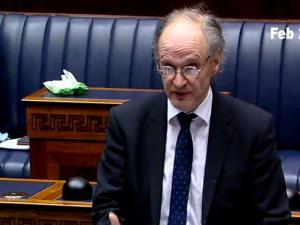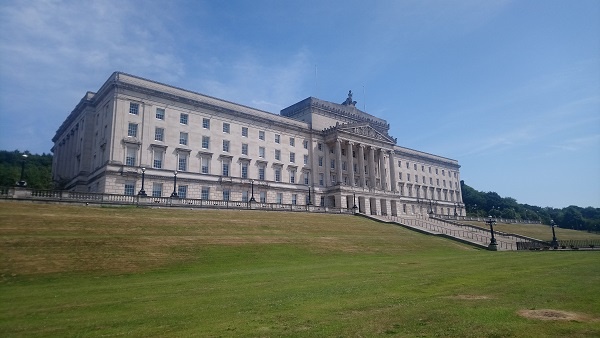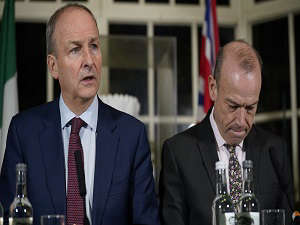
Q Radio News/PA
Northern Ireland’s Education Minister is considering introducing flexibility to the school starting age.
The law states that children who have reached the age of four on or before July 1 should start primary school at the beginning of the September of that year.
Peter Weir said his officials will look at introducing some flexibility, particularly for children who were born prematurely in early summer.
He told the Assembly on Tuesday of his intention to introduce legislation to address issues which to relate to flexibility around the school starting age.
“I have instructed officials to begin scoping out the work for a potential bill within this mandate,” he told MLAs.
“I fully support the concept that parents, especially those with premature children who are born late in the academic year, should have some level of flexibility around this issue.”
He said it will be his department’s key legislative priority.

Education Minister Peter Weir was speaking at the Assembly on Tuesday.
Mr Weir later said it is not a wider debate on the school starting age.
“For a number of children, particularly with premature births, there is a feeling that the system doesn’t really accommodate them … and there is no opportunity to take individual circumstances into account,” he added.
“This has been raised by a number of families. We want to see what can be done directly to accommodate them.
“It’s not about throwing the entire system widely open to everybody.
“While the volume of people that it affects will be limited, for those individual families, that will make a very big difference.”
Speaking on behalf of the umbrella School Start Flexibility NI campaign, campaign representative, Dr Liz Fawcett, said:
“We’re delighted that the Minister has made this commitment to finally addressing the issue of school starting age flexibility.
“We’re aware of so many children, particularly those who are young for the year or born prematurely, who would have benefited from delaying their school start but for whom it is now too late.
“But we’re really glad to hear that children in a similar situation in the future might have better outcomes, and that parents affected by this issue might be given some choice in this matter.”
Dr. Fawcett has been speaking to Q Radio News:
Alison McNulty, from the charity Tiny Life, said a few hundred children each year could benefit from the proposed flexibility.
She said around 2,000 babies spend time in a neonatal units in Northern Ireland each year, and so the number born prematurely in April, May and June is likely to be a few hundred.
“To those born in the month of June it will be fantastic, the detail of the bill still has to be worked on and it will go for consultation, and we will be supporting our families to have their voice heard,” she said.
“We will be strongly advocating a minimum of babies born in April, May and June, and also those babies who are born extremely premature, those born under 28 weeks. Their needs should be taken into consideration as well.”
She said that not all babies born premature will experience a negative impact in terms of their academic ability,
“But for those that actually go into school too early, it’s not just about what they attain, it’s about how they experience learning and we’re forcing some of our children into formal learning too soon,” she added.


 UK and Irish ministers to meet amid row over migration
UK and Irish ministers to meet amid row over migration
 Three men set to go on trial for murder of journalist Lyra McKee
Three men set to go on trial for murder of journalist Lyra McKee
 Swann refuses to rule out resigning if budget is not changed
Swann refuses to rule out resigning if budget is not changed
 Fresh inquests ordered into deaths of 15 killed in McGurk’s bomb blast
Fresh inquests ordered into deaths of 15 killed in McGurk’s bomb blast